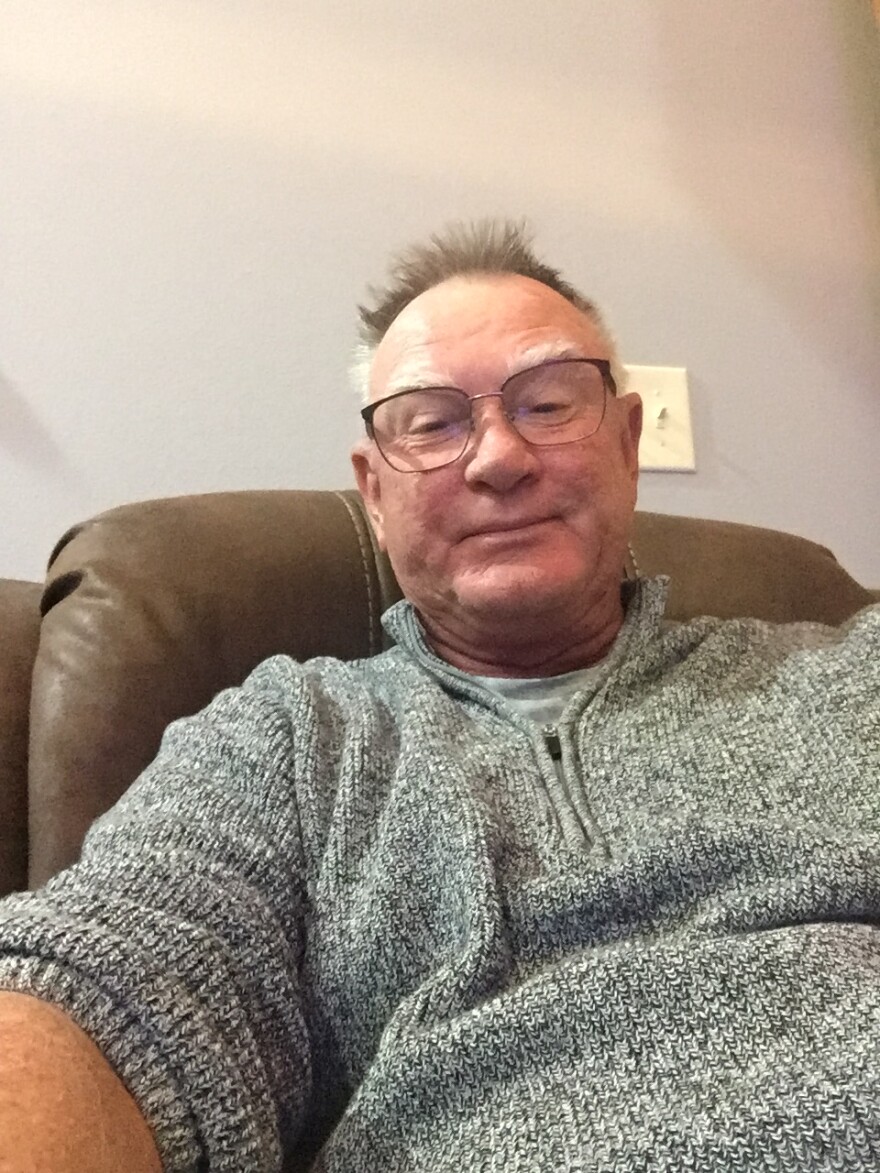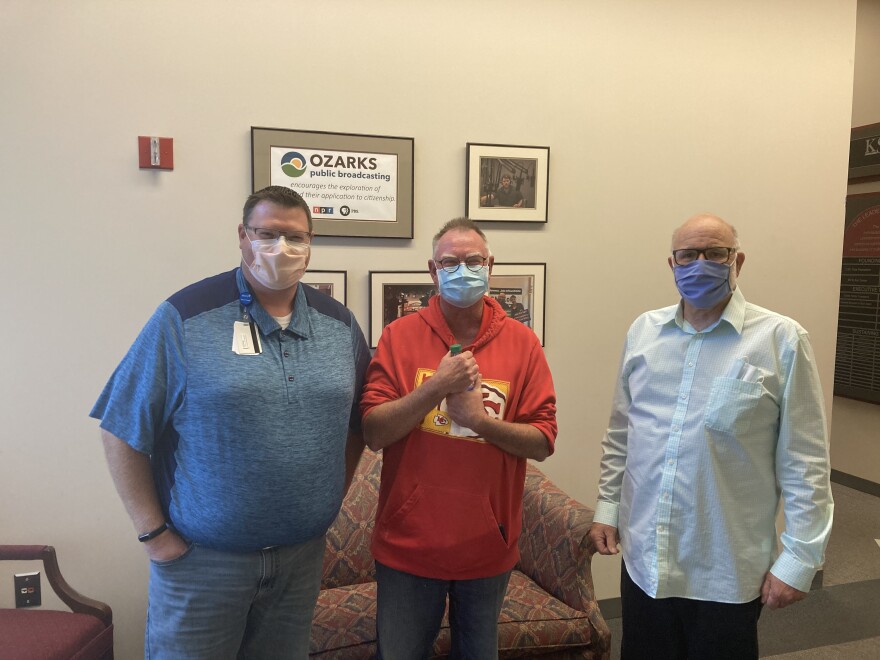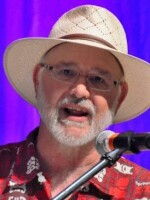From Ozarks Public Radio at KSMU.org, this is Making a Difference; Connecting Through Conversation, an ongoing series produced in cooperation with the Community Foundation of the Ozarks.
The 2020-2021 season of Making a Difference Connecting Through Conversation, features a series of conversations between persons in respectful relationships, but with opposing views. Today, we hear from a father and son from Springfield Missouri, with different opinions on third party voters.
DW: "My name is David Wortley and lifelong Springfield, but retired. So that means I'm in my 60s. I worked at Cox Health for 40 some years, worked in neuro diagnostics and intraoperative monitoring and then the Sleep Disorder Center and got to see tons of technological growth."
JW: "My name is Jason Wortley, 40 years old. I belong to Dave, I guess. I work in the home care field. So durable medical equipment, we provide, you know, walkers and wheelchairs and things of that sort. Started that when I was 18. And I grew up in Springfield, born and raised, took some time off and went to Kirksville for a minute to go to college and then came back home. And I've been doing this ever since."

DW: "You know, I was definitely influenced by Kent State, the Vietnam War, Nixon's impeachment and resignation. That definitely had a big impact. And the church that I was involved with as a teenager was very politically active. We would go up to inner cities and help with Head Start drives and in painting churches and stuff like that. And luckily, my wife also had that similar experience through a different church. But as they say, you know, some things change as you actually have a kid and a mortgage and probably toned it down some, but I haven't lost all of that."
JW: "I would say, you know, politically, my earliest memory is probably I got to stay up really late one time and watch balloons drop, when Reagan got elected. I think his second election. Didn't really know philosophically what was happening, but it seemed like a fun process to be involved in. And then your dad really took an interest in making sure that I think I've seen every President since Reagan. If they've come to town, he made sure that I got to be a part of that in some way. And Reagan visited here, I think in 83. I saw George Herbert Walker Bush when he was still vice president in 1987. And then when I was a little older, I remember, you know, riding around in the car with you in the old Datsun and Rush Limbaugh would be on the radio."
DW: "You know, I try to keep an open mind. I'll even look at FOX News now and then. You know, you got to keep up with what's happening on the other side."
JW: "But what I did remember from that is he'd have all these parody commercials and they were kind of wild and fun. And I remember he used to talk about surrounding yourself with smarter people than you. If you're around people that are better than you, hopefully some of that will rub off because you have to punch up. So kind of growing up, that was where I was at. I knew some things, I think, from listening to you guys, and I kind of took some of that to heart, but I didn't really pay attention until I was a little older, I don't think. You know, there were some things that did rub off. I think a lot of it wasn't like put in the frame of here's politically what we believe. But I think a lot of it was like what you were saying with your with the activities, you know, here's how we're going to live. Here's what we think, as far as you know, we want to help people. Those that are not as well off as we are, that have difficulties. We want to go help them. And what does that translate into politically? I remember it was kind of a boring life sometimes on a Friday night and we'd sit down and watch PBS and I think it was MacNeil Lehrer was on and and McLaughlin Group and some of that stuff. And I remember thinking that was probably not typical. I grew up watching stuff like that on on TV."

"Ninety-Six was my first election that I could really vote for president. So in 96, rolled around like, yes, I get to do this for real. You know, I couldn't wait to run out and vote for Clinton. I thought I was doing my civic duty. And, you know, I was, but I didn't really know why I was doing that, other than knowing that you were Clinton fans, and then being at college at the time, that was kind of like the thing to do. So that's what we'll do."
"And I didn't really think much about that until I started in '97 working a real job full time, and paying taxes for real for the first time. And I bought a house for the first time at a pretty young age and paid taxes on that and saw that, you know, I was working really hard. And a lot of that was going to places that I had no real say and I had to write the check or have it deducted from my payroll, and then it was just gone. And other people got to decide where all that went, the fruits of my labor. And I started thinking, man, that doesn't feel right. I don't really like not having that say so. And so I wanted to change if I couldn't change that, at least change who was taking it and hopefully get a little bit less taken away from me. And so that kind of shifted my ideals more from a Democrat to Republican. I think by 2008 I had made the shift to we need another option. And I've been pretty vocal for a long time about let's get some other options in here. Because I don't like having two bad options to to vote for at least I would like four or five bad options."
DW: "2020 is tough on that because, you know, there is a tendency and I think some of it is based in fact, and that is if you're voting third party, you're throwing your vote away, you know. So come along, come with us."

JW: "And and I hear that a lot about this is the most important election of our lives. And I see that argument of throwing your vote away. But I feel like I've paid my dues and that it's not something that for 2020 I said, oh, I don't like this anymore and I'm going to go off the rails and do this. It's something that I've been pretty vocal about. Let's get away from two bad people and introduce some more options. Even if those aren't better options, at least we have more options to choose from. So it's not so binary left and right, right and wrong. We can pick and choose, you know. Maybe fiscally, I want to be more conservative, but socially, you know, we want to help people. We want to make change. We want everybody to be better off. I think we can we can find ways to lift everybody up so you can pick and choose those policies. If you had more than two choices and say, well, I like this from over here and I like this from over here, and this is kind of close to both of those, so maybe I can choose that option instead."
"Maybe I'm throwing my vote away, but I like the idea that I get to vote for something, whatever that is. And Libertarian has been my standby, but it's not always that. But I want to vote for something, not I'm voting against this other thing that I think is evil or evil light over here, I'm voting for something. And to me, that feeling of freedom to, I'm excited about this issue or this person or this candidate is nice and it's worth throwing the vote away, if that's what we want to call it, to have that feeling like I voted for instead of against."

DW: "And looking back, we should have cracked the whip and said, no, you're supposed to believe this way. What do we get for being open minded and letting him make up his own decision? That turns out like this. He doesn't agree with me all the time."
JW: "But, you know, we don't agree a lot on issues, but it's not because we don't agree on them. I think a lot of things we want the same thing. But what we don't agree on is how to get there."
DW: "Well said. That's exactly it. It's not like we say that is just a stupid policy. And nobody, the government or society should not be addressing that. It's just the method of addressing it."
JW: "Right. You know, we're on different paths and we're both going to go to the same destination. But, you know, one of us is on the highway and one of us has taken the scenic route. And I'm not sure which is which. I think we both think we're on the highway to to do it faster. And that's, you know, that's what makes it lively, is we get to bounce those things off of each other and be prepared to defend that position."
DW: What makes it so hard right now is what is the truth?"
JW: Yeah, where are your sources coming from and who do you believe, and what's the bias? Because it's all going to be skewed somehow. And so where is that bias coming from? So you can kind of tilt it back the other way. And that's hard work."

DW: "And right now there are so many people pushing falsehoods, but they do it with flash and panache. And you think they have to be right. Oh, that can't be just made up stuff. But it is. Yeah. And so if you can't agree on a certain set of basic facts, it is very tough to come to common ground."
JW: "Yeah, and I think over the years we've gotten more comfortable with each other so that it's not contentious, we don't have to yell and scream. We've had a few of those, but we've kind of found the boundaries for one another. You know, I appreciate that we can come to common ground even when we split. We always come back to, well, where do we agree and how can we get there?"
DW: "That is true. We never split with he was just dead wrong and he just will not listen. I don't know that we've ever left the house and have that kind of hangover over that's so negative. Not anymore. We know to get to a common spot before we part ways. Yeah. Really, as we like to say on this side of the Wortley side is that we are not voting for ourselves because we're so old. It really doesn't matter. We're voting for your daughter. What do we want your daughter's world to look like and what kind of influence do we want to be on her? Do we need to be arguing and yelling and screaming in front of her about what we think are important? No, we don't want to teach her that's how you interact, even when you disagree. You got to be civil."
JW: "Yeah. And really, you know, she's ten. And I hope that right now she's ambivalent. I hope she doesn't really pay attention. For me, that's a win so that she can be a kid for a little while longer. Her time will come."
Jason Wortley and his dad, David, both live in Springfield, Missouri.

KSMU's Making a Difference; Connecting Through Conversation, is produced in cooperation with the Community Foundation of the Ozarks, helping individuals and organizations accomplish their goals by facilitating charitable giving, scholarships, and grant making. For information, cfozarks.org. For KSMU, I'm Mike Smith.





